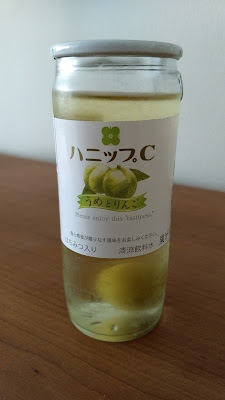When I had more time between jobs, I decided to spend more time on Twitch to listen to electronic music, especially from Germany because I was trying to improve my German while listening to music that was very different than what's popular in Chicago.
What I've noticed is that American music has been hip hop-oriented while Germany seems to not have focused on such beats or sounds, and what they call "House" really isn't the House that originated in Chicago. It's also interesting when the DJs don't speak much English because they play music that is more European-based, and to me it's both enjoyable and interesting. I haven't been to Europe in several years, so it's like I'm traveling via music.
One day I was listening to a German DJ and I noticed that his bio was only in German. Even if other DJs don't know English very well, they usually manage to translate their info, even if it isn't so perfect. So I asked him in the chat if he wanted me to translate his bio into English, and he said yes. At first, I didn't see it in his profile, so I figured he didn't want to post it. Then he did, and here it is:
Meine Leidenschaft zur Musik begann schon vor einer gefühlten Ewigkeit. Mit den ersten Schul-Disco's wuchs die Liebe zum DJ'ing.
Seit 89 war ich dann über 12 Jahre aktiv als DJ in Clubs und Diskotheken unterwegs.
Nach einer längeren Pause bin ich jetzt wieder hier am Start und möchte euch auf meinem Kanal eine Galaxie voller elektronischer Musik präsentieren.
Begleitet mich auf meiner Reise durch die unendlichen Weiten mit elektronischen Melodic und Progressive Sounds, chillt mit Deep-House Music oder tanzt ab bei Special-Sets mit House-Music oder ab und zu bei Sets mit Musik aus 80er, 90er oder Trance-Classics.
Werdet Teil einer tollen Community
My passion for music began what feels like an eternity ago. From my first school discos, my love of DJ’ing grew. I was an active DJ in clubs and discos from 1989 for more than 12 years.
After a long break I’m back, starting here again, and want to offer you a galaxy full of electronic music on my channel.
Join me on my journey through the infinite expanses of electronic melodic and progressive sounds. Chill out with deep house music or dance the night away to special sets with house music, or sometimes sets with music from the 80s, 90s or trance classics.
Be part of a great community.
The intro is still only in German, so I'll post the translation that I did here:
Herzlich Willkommmen auf dem Kanal von Galaxy-Music! Neben spacig-elektronischem Sound aus Melodic und Progressive House, gibt es hier auch irdische Klänge mit Deep-House, House... bis hin zu Special-Set's. Enjoy it and feel the Music und werde ein Teil unserer großartigen Community.
A warm welcome to the Galaxy-Music channel! In addition to the spacey-electronic sounds of melodic and progressive House, there are also the earthly sounds of Deep-House, House…including Special-Sets here. Enjoy it and feel the music and be a part of our great community.
My next German-translating endeavor is going to be an article about a German electronica group that I also discovered on Twitch.
p.s. the e-book version of my debut novel is still at Amazon, and the price for the print version has been reduced: buy at the Eckhartz Press site.


